
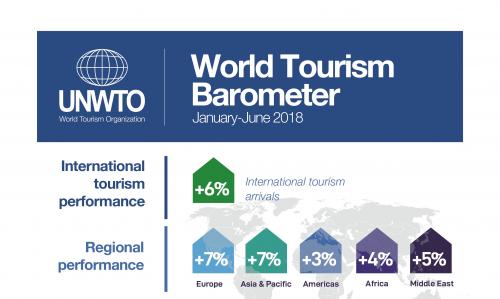
International Tourism Maintains Strong Momentum
According to the World Tourism Organization (UNWTO)’s latest barometer, international tourist arrivals grew 6% in the first six months of 2018 after a record year of growth in 2017.
All world regions enjoyed robust growth in tourist arrivals in January-June 2018. The increase was fuelled by strong demand from major source markets, supported by an upswing in the global economy. It comes after record year-round growth of 7% in 2017.
“Today’s release of international tourism data for the first half of 2018 serves as further proof of the sector’s resilience and relentless growth trajectory. We continue to work with our many partners to translate this growth into better jobs, more benefits to societies, and more opportunities for sustainable livelihoods and destinations”, said UNWTO Secretary-General Zurab Pololikashvili.
By region, Europe and Asia and the Pacific led growth with a 7% increase in arrivals each. Southern Mediterranean Europe and South-East Asia had the strongest results in these regions, both welcoming 9% more international tourists.
The Middle East and Africa also recorded sound results with arrivals growing at 5% and 4%, respectively, according to still-limited information available for destinations in these regions. The Americas saw 3% growth in arrivals over the six-month period, driven by South America (+7%) and North America (+5%). The United States continued to fuel much growth in the region and beyond.
On the demand side, France, the United Kingdom and the Russian Federation all reported double-digit increases in outbound spending in Europe. India and the Republic of Korea drove growth in Asia and the Pacific, while the world’s top source market China reported similar spending as in the same period last year.
Looking ahead
The first half of the year accounts for about 45% of annual international tourist arrivals. The second half represents 55% as it is three days longer and includes the Northern Hemisphere high-season months of July and August.
Against a strong first semester, growth prospects for the remainder of 2018 remain positive overall, though at a slower pace, according to the latest UNWTO Confidence Index survey. The Index value for May-August and expectations for September-December are somewhat lower than the Index value for January-April.
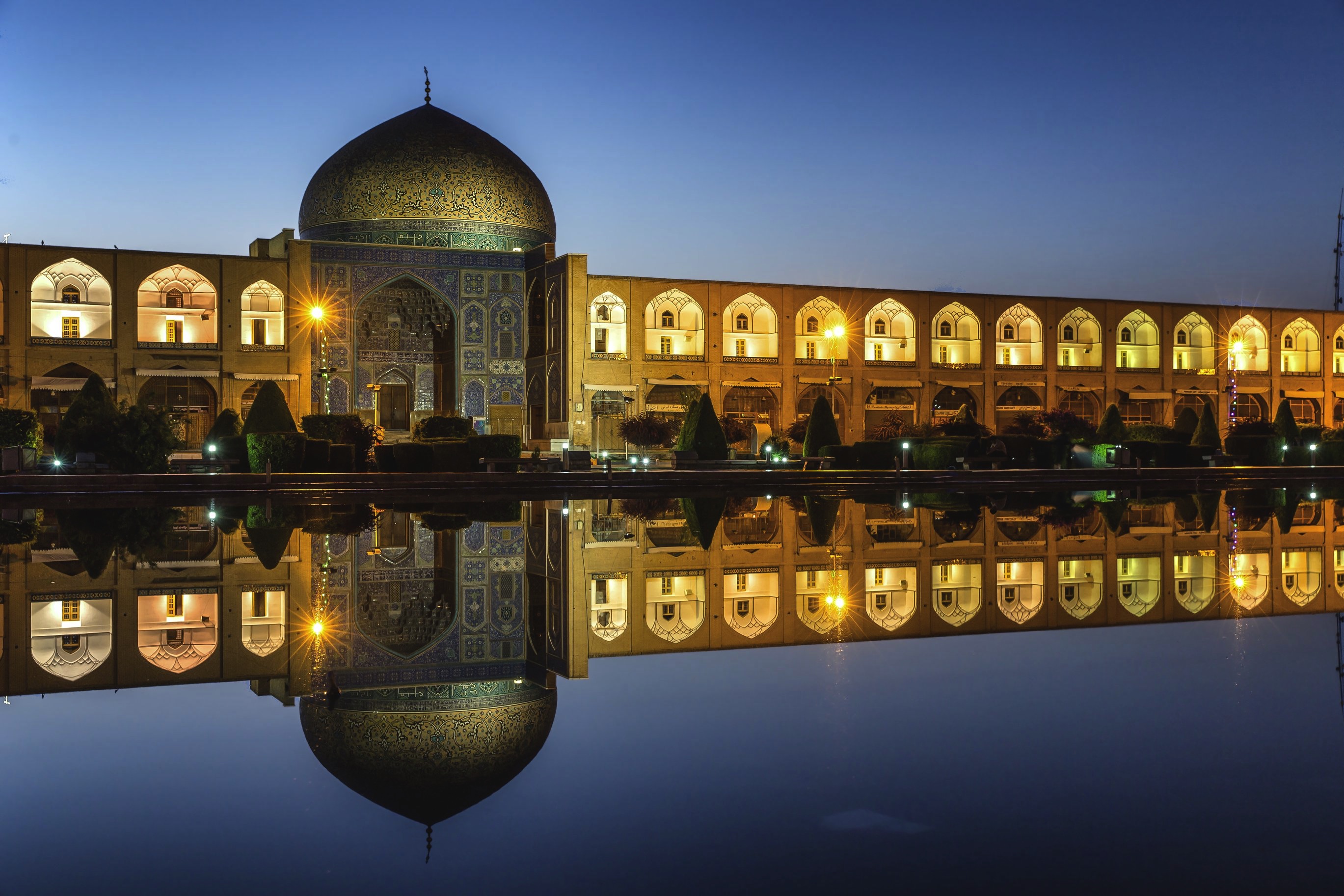
Technology and Innovation Seen as a Big Boost to Cultural Tourism
Seeking to advance use of innovation and cutting-edge technologies into cultural tourism practices, destinations and products, the International Seminar on Harnessing Cultural Tourism through Innovation and Technology will be held in Hamedan, Iran alongside the 40th UNWTO Affiliate Members Plenary Session (12-14 November 2018).
The seminar recognizes the significance of innovation in managing and promoting cultural tourism, which is one of the largest global tourism markets, and the opportunities of integrating innovative governance into the management of cultural tourism destinations. Through disrupting the sector and creating opportunities for improving governance, competitiveness and cultural resource preservation, innovation and technology are instrumental in enhancing cultural tourism development.
The seminar will feature three panels, exploring how big data, innovative business models, digital services and marketing, and other new technology can ensure long-term sustainability, profitability and competitiveness for cultural tourism products while preserving their authenticity. The keynote panel will explore how innovation and technology generate new opportunities for, and motivate new players to enter, the cultural tourism sector.
An estimated 4 out of 10 tourists choose their destination based on its cultural offering. The conference will explore how this choice is increasingly motivated by intangible factors such as a place’s culture, history, traditions and atmosphere, or its association with famous people, ideas or events.
Host city Hamedan, historically home to Iran’s famous scientists and poets, is nowadays known for its rich heritage of handicrafts, namely pottery design. The small town of Lalejin in Hamedan Province was designated the World Pottery Capital by the World Crafts Council on July 2016. Nearby Alisadr, the world’s largest water cave, is another renowned tourist attraction.
The seminar, which also spans the UNWTO Affiliate Members’ 40th plenary, is jointly organized by the World Tourism Organization (UNWTO), the Iran Cultural Heritage, Handcraft and Tourism Organization, and Alisadr Tourism Company.

WTTC welcomes Turismo de Portugal as new Destination Partner
The World Travel & Tourism Council (WTTC) today welcomes Luis Araújo, President, Turismo de Portugal, as our newest Member and Destination Partner.
Mr. Araújo joins peers from Visit California, NYC & Company, Las Vegas Convention & Visitor Authority, and Ras Al Khaimah Tourism Development Authority to become our fifth Destination Partner in five months. This announcement thus marks WTTC’s first formal alliance/affiliation with a Destination Partner based in Europe.
The Destination Partner membership category – our newest member classification – amplifies the voice of major National Tourism Organisations (NTOs) and Destination Management Organisations (DMOs) from across the globe, and will serve to tackle issues within the Travel & Tourism sector such as overcrowding and crisis preparedness.
WTTC’s partnership with Turismo de Portugal follows a hugely successful joint-event hosted in Lisbon this month. On 11 September, WTTC and Turismo Portugal welcomed over 150 CEOs, Ministers and industry leaders from across Europe at our inaugural Europe Leaders Forum, to discuss key issues affecting the region’s Travel & Tourism sector including travel facilitation, sustainable growth, and the future of work.
Luis Araújo serves as President of Turismo de Portugal, the country’s national authority responsible for the promotion and development of tourism. Mr. Araújo was appointed President of Turismo de Portugal in 2016 following a varied career in law and government both in Portugal and Latin America. In his current role, Mr. Araújo is responsible for promoting the Portuguese brand, attracting sector investments, and overseeing training provisions of Travel & Tourism workers in Portugal.
Gloria Guevara, President and CEO, WTTC, said, “I am so pleased to officially welcome Luis Araújo as a Member and Partner of WTTC.
“Portugal is a well-established destination with its Travel & Tourism sector boasting a growth rate that is three times faster than the country’s economy as a whole. Indeed, Portugal’s sector is healthy and growing. According to WTTC, in 2017, tourism contributed 17% to Portugal’s GDP and supported 1 in 5 of all jobs there.
“The inclusion of Turismo de Portugal as a Destination Partner helps to broaden WTTC’s representation of the global Travel & Tourism sector, allowing us to more effectively advocate for tourism actors and key issues worldwide.”
Luis Araújo commented, “I am delighted to formally join the WTTC as a Destination Partner, and am wholly confident that this newfound partnership will be a great one for tourism in Portugal, strengthening our travel network and knowledge-sharing opportunities. Our recent collaboration at the Europe Leaders Forum led to a dynamic, thoughtful, and truly special event, which makes me hopeful for our new partnership and future ventures.”
eTurboNews is a media partner for WTTC.
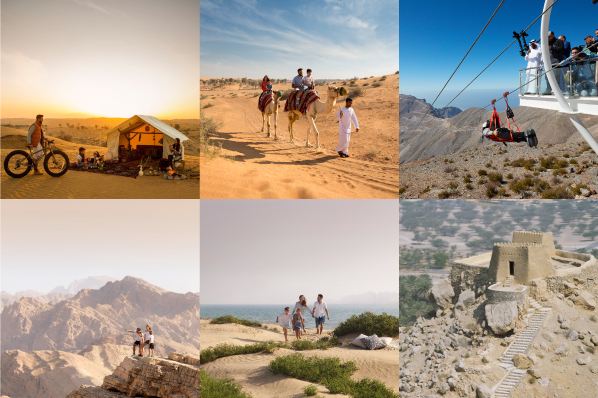
Ras Al Khaimah to host PATA Annual Summit 2020
BANGKOK, October 8, 2018 — The Pacific Asia Travel Association (PATA) is set to organise the PATA Annual Summit 2020 from May 15-18 in Ras Al Khaimah, one of the fastest growing tourism destinations in the United Arab Emirates (UAE).
The announcement was made by PATA CEO Dr. Mario Hardy during the PATA Board Meeting on Sunday, September 16, 2018 at the Langkawi International Convention Centre in Langkawi, Malaysia.
The four-day event, to be hosted by the Ras Al Khaimah Tourism Development Authority (RAKTDA), will bring together international thought leaders, industry shapers and senior decision-makers who are professionally engaged with the Asia Pacific region.
PATA CEO Dr. Mario Hardy said, “Ras Al Khaimah has committed to supporting cultural, natural heritage and environmental preservation across the emirate, activities which are aligned with PATA’s mission in acting as a catalyst for the responsible development of travel and tourism to, from and within the Asia Pacific region. That is why we are honoured to be working with RAKTDA in bringing together our public and private sector members and partners to discuss the challenges and issues facing our industry.”
The Summit embraces a global forum for enhancing the sustainable growth, value and quality of tourism and includes a one-day conference, the PATA Annual General Meeting and the PATA Youth Symposium that allows students and young tourism professionals the opportunity to engage with senior industry leaders.
As part of the event programme, PATA in partnership with the World Tourism Organization (UNWTO) will also once again organise the UNWTO/PATA Leaders Debate which brings together senior executives from both the public and private sector to address thought-provoking issues currently affecting the industry.
Commenting on the announcement, Haitham Mattar, CEO of Ras Al Khaimah Tourism Development Authority, said, “We look forward to hosting the PATA Annual Summit 2020 in Ras Al Khaimah and introducing the destination to key international industry leaders and delegates from the travel and hospitality sector in the Asia Pacific region. Strengthening the Emirate’s MICE offer by showcasing our world class resorts, beautiful coastline and abundance of cultural and outdoor adventure experiences, will form an integral part of our Destination strategy as we aim to attract three million visitors by 2025.”
With over 7,000 years of fascinating history and culture, Ras Al Khaimah is the perfect getaway from everyday life. Offering magnificent landscapes, breath-taking coastlines and rich, terracotta desert planes, the emirate is an ideal getaway for both leisure and adventure travel as well as for business travellers.
With year-long sunshine and 64 kilometres of white sandy beaches, just 45 minutes from the busy metropolis of Dubai, Ras Al Khaimah presents an extensive selection of exclusive outdoor activities from mountain biking and kayaking to desert safaris, fishing and golf. Travellers can also have the unique experience of trekking the tallest mountain in the UAE, Jebel Jais, and descending via the world’s longest zipline. These experiences dovetail well with the premium accommodation, the eclectic selection of international gourmet experiences and the world class spas.
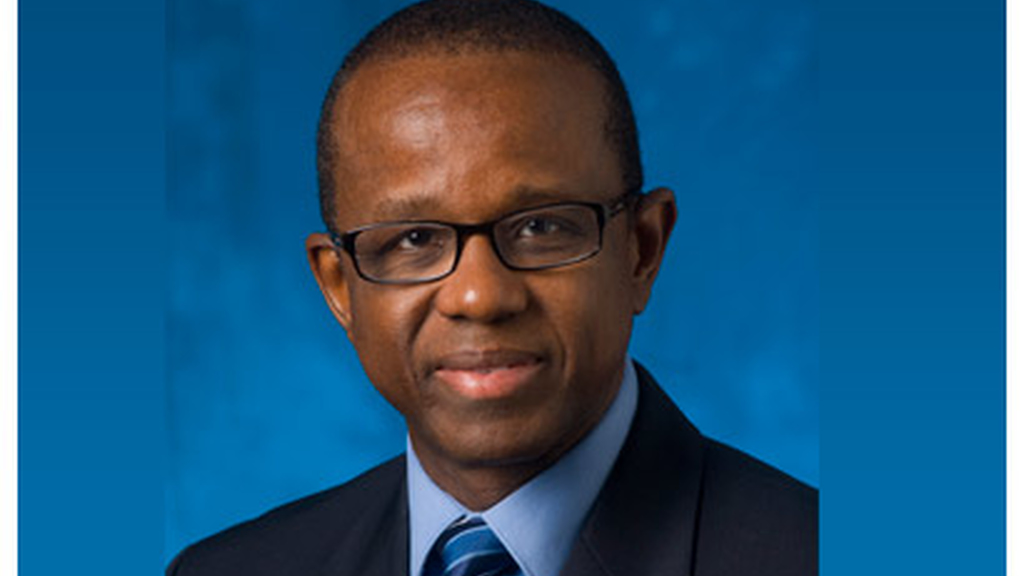
Secretary General of CTO: Critical role of the Caribbean in tourism
On Friday, October 5, 2018, at the Atlantis Resort, Paradise Island, in the Bahamas, the Secretary General of the Caribbean Tourism Organization, Hugh Riley, thanked the head table and other dignitaries and media for coming to the State of the Tourism Industry Conference (SOTIC) and delivered the following opening remarks at a news conference:
Let me first of all, publicly thank my colleague ministers for placing their faith in me by electing me on Tuesday as chairman of the Caribbean Tourism Organization. I’m humbled by their confidence, yet excited about the opportunity to help guide such an important regional institution for the next two years.
I’m also excited at the prospects for the CTO and the critical role it can play in unifying the Caribbean, not simply as a tourism destination, but as a people destined for greatness.
I’m convinced that a well-supported, well-funded, CTO can take its place alongside other venerable institutions to lift the people of the Caribbean to incredible heights that are attainable but not yet achieved.
The organization’s leadership in tourism and its contribution to the development of our human resources will help drive strong economies and build reliable, competent and productive workforces and Caribbean populations that are ready to face an ever-changing global environment.
The CTO’s leadership was on full display this week through the experts we brought together to share insights into how we can better build a lasting and sustainable tourism sector that will benefit every individual, every community, every country in this region.
We dared to challenge the region to build better, not just the infrastructure, but the entire industry. We explored applicable recommendations for the use of technology, not only to improve the visitors’ experience, but our lot as a people. We boldly tackled controversial issues such as commoditizing our cultures without exploiting them and embracing the Caribbean as a region of roots.
We brought these issues to the forefront not because they’re popular, but because we are convinced they must be successfully addressed sooner rather than later, if we are to truly build a Caribbean tourism industry for the future.
And there’s no better way to shape the future than to involve our young people. There isn’t a single person among those who were in the room for yesterday’s youth congress, or among the approximately three thousand people who watched it live on the CTO Facebook page, who will disagree with me when I say we have some of the most creative, imaginative and smartest young people anywhere.
They are the ones who will be challenged to continue building the tourism industry on the foundation that has been laid by today’s leaders and yesterday’s pioneers. Based on the strength of their performances yesterday, I’m confident that the future of tourism is bright.
In this context, allow me to congratulate the youth congress winner, Jamaica’s Bryanna Hylton, as well as St. Maarten’s Kiara Meyers and Caroline Pain of Martinique, who placed in the top three.
I know you’d also like an update on our The Rhythm Never Stops campaign; I’m happy to advise that the campaign will be launched this coming Monday, thanks to the public- and private sector stakeholders who contributed to this important first phase.
On the region’s tourism performance, it has been a tale of two situations. On the one hand, we have robust growth in countries that were not affected by last year’s hurricanes.
On the other, we have seen dramatic decreases in arrivals to those hit by the storms, although the performances of these countries are steadily improving.
Of the 22 reporting destinations, 13 of them registered increases in tourist arrivals during the first half of the year, ranging from 1.7 percent to 18.3, while seven recorded decreases of between a negligible -0.3 percent and 71 percent.
The top performing destination during this period were Guyana at 18.3 percent, Belize at 17.1 percent, the Cayman Islands at 15.9 percent, and Grenada at 10.7 percent and the Bahamas at 10.2 percent.
These individual results substantiate the regional messaging of the openness of the destinations for business and the confidence in destinations to deliver quality experiences.
The performances of the key source markets varied considerably, with some destinations recording strong growth, while others registered declines.
In the US market, for example, while Jamaica reported growth of 8.4 percent, the Dominican Republic was up by 6.3 percent and 11 other destinations achieved growth, six of which were by double digits, the Caribbean received Seven million visits from the US during the first half of the year.
This was a 15.8 percent decrease when compared to the corresponding period last year, due mainly to a 54.6 percent fall in arrivals to Puerto Rico and decreases in arrivals to Cuba.
On the other hand, there was a new record in arrivals from Canada for this time of year, with 2.4 million overnight international tourists, representing a 4.7 percent increase.
Arrivals from Europe also increased, though marginally at 0.3 percent, with three million tourists visiting the Caribbean during the first half of the year.
Belize led the way with 24.3 percent growth, followed by Guyana at 9.4% percent, Curaçao 6.2 percent and Saint Lucia at 4.5 percent. However, overall growth was impacted by steep falls in arrivals to Anguilla, Puerto Rico and Bermuda.
There was also a marginal decline of 0.5 percent in cruise visits, although there are signs of improvement. Of the 23 reporting destinations, 15 realized improvement upon their 2017 performances with Trinidad & Tobago registering increases of 166 percent, St. Vincent & the Grenadines up by 84 percent and Martinique at 54.7 percent, leading on growth rates.
However, this was countered by declines of nearly 90 percent in the British Virgin Islands, Dominica was down by 88.4 percent, St. Maarten down 27.5 percent, and the US Virgin Islands decreased by 22.5 percent. Puerto Rico, though hurricane-impacted, posted a 1.1 percent increase during the period.
The region’s competitive advantages of a diverse tourism product and safety and security are still intact. Destinations are rebuilding, and new tourism products and services are being restored daily in the destinations impacted by last year’s hurricanes.
Our research department anticipates an overall decline of between three and four percent this year, but predicts a 4.3 percent increase next year.
Cruise, on the other hand, is projected to grow by five percent to six percent this year.
Let me take the opportunity to thank Minister Dionisio D’Aguillar, director general Joy Jibrilu and team at the Bahamas ministry of tourism, as well as our own CTO staff for working so hard to pull off a wonderful State of the Tourism Industry conference, and I thank you for your participation.
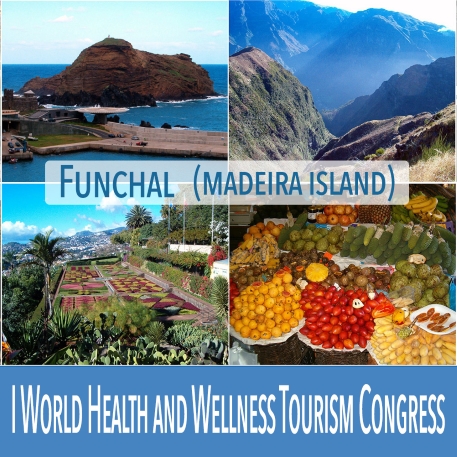
“It’s Almost Too Late.” ICTP President to World Health Tourism Congress
In a strong keynote address to Tourism Experts, Doctors and Students gathered on the Portuguese Island of Madeira, Professor Geoffrey Lipman Co-Founder of SUNx – the Strong Universal Network said that the industry is running out of time to craft a meaningful response to the existential challenge of Climate Change.
He said that “Health Tourism – nature and medically linked – may well be in a sweet-spot of tourism growth, at more than 10% a year… but without a climate resilience strategy it will be equally vulnerable to the ravages of extreme weather and the consequences in terms of floods, fires, droughts and climate refugees”.
Lipman pointed to the heat patterns in the Northern hemisphere, the droughts in Australia, the typhoons in Japan and Philippines– as well as last year’s devastating Caribbean Hurricanes and this years’ US floods and forest fires.
He noted that “in the past decade more than 20 million climate refugees had already emerged – this is the tip of a humanly tragic and politically disruptive iceberg”. It will only worsen as we head towards 3o – which is where we will be in 2050 if we don’t make radical behavioural changes. As a leading sector Tourism must be in the forefront of those changes.
Lipman profiled the SUNx network to galvanise tourism destinations and to link the enormous body of research being done at Universities around the world, as well as the data and analytics from committed organizations inside and outside the Travel and Tourism sector.
SUNx has developed a framework for Climate Resilience and Innovation Centres in every country by 2030 – supporting Paris Climate Accord targets and linked to SDG 13. They will be pop up SUN Arks, cloud connected and filled with young bright climate champions, talking to each other about “Smart Impact-Travel” solutions. He defined these as “Travel & Tourism planning that’s measured to manage: green to grow: 2050 proof to innovate. Not so much detailed, definition-based programs but more a direction for change that every travel product needs to reflect, and every travel company or community needs to embrace.”
He also outlined SUNx lifetime learning approach with a Dodo cartoon series for kids, online University courses, a universal portal, focusing the most useful climate data analytics, and Strong Legacy Scholarships for graduates. The first of these will launch in 2019 in collaboration with t-Forum and the IRiSS the Italian Services Research Centre. This is complemented by an annual Climate SmART Award for Museums, as the ultimate learning centres.
Finally, he discussed the partnership project with TraNeXus, designed to bring Blockchain solutions to provide carbon accounts for travellers, which he believes will be needed as the Paris Climate Accords bite in the next decade and we will all have to deliver low carbon lifestyles.
SUNx will reach out to Communities and Corporations to help develop its Climate Resilience and Innovation System and build open links with likeminded Travel & Tourism organizations
Quoting Maurice Strong he said “the planet will survive as it has done for billions of years. It’s the people we have to worry about” He concluded with the Club of Rome’s call for action “Come On – It’s almost too late. …. but we can fix the problem if we act together, now.

International Day of Non-Violence at UN explores tolerance and understanding
Prestigious statesman, peace activists, and highly-acclaimed leaders gathered in New York earlier today to commemorate the anniversary of Indian activist, Mahatma Gandhi’s birth. Internationally recognized as “Non-Violence Day,” the United Nations played host to a day of discussions around the future of conflict-resolution and ways to improve tolerance and understanding in the modern world.
The impact of technology was an important theme. While access to the Internet has been found to foster improved positivity, increased awareness and acceptance of other cultures, questions remain about its role in spreading intolerance.
Gianpiero Lotito, Founder and CEO of Italy’s highest-valued technology business, the European Search platform FacilityLive, explored how digital technology can help peace processes.
Gianpiero Lotito commented: “Technology enables us to protect against threats. Thanks to technology, we are able to fight terrorism, cyberterrorism, digital warfare and physical war to protect people. But, paradoxically, technology also creates these threats.”
The topics explored at the inaugural ‘Non-violence in Action’ meeting have become more significant in recent years in light of the increasing prevalence of extreme ideologies, violence, terrorism and armed conflicts. As the first non-governmental and non-political Italian invited to give a speech at the United Nations in more than 20 years, Gianpiero shared a vision for a more united Europe.
Gianpiero continued: “The combination of technology and peace is so important. That’s why working on a more human, more inclusive and less worrying technology becomes a mission. We don’t know if the future memory of humanity will be preserved by digital libraries as it was for those printed on paper.
“We need to be careful: if we transfer the world’s collective memory only in a digital format, we don’t know today what the long-term effects of this paradigm shift will be. We cannot risk discovering in two hundred years’ time that we were wrong about technology’s ability to preserve information, and that we left a hole in the memory of humanity. Only by returning to a more ethical, more human and more useful dimension of technology, will we respect our mission as technologists, people of peace, and humans.
“My generation has destroyed the dreams of some of the younger generations. I believe that it should be our mission to give them back the dreams that our parents and our grandparents, who lived during times of war, offered us. They had the desire to give their children and grandchildren the opportunity to live in a better world, a world of peace.”
Other speakers at the event included:
• Ms. Maria Fernanda Espinosa Garces, President of the UN General Assembly
• Mr. Achim Steiner, United Nations Development Program (UNDP) Administrator
• Ms. Jan Beagle, UN Under-secretary General
• Ambassador Tanmaya Lai, Permanent Representative of India to the UN
• Mr. Michael Nagler, Founder and President of The Metta Center
• Mr. Johan Ernst Nilson, from the Non-Violence Project Foundation
• Ms. Navina Haidar, Curator of the Department of Islamic Art at the MET
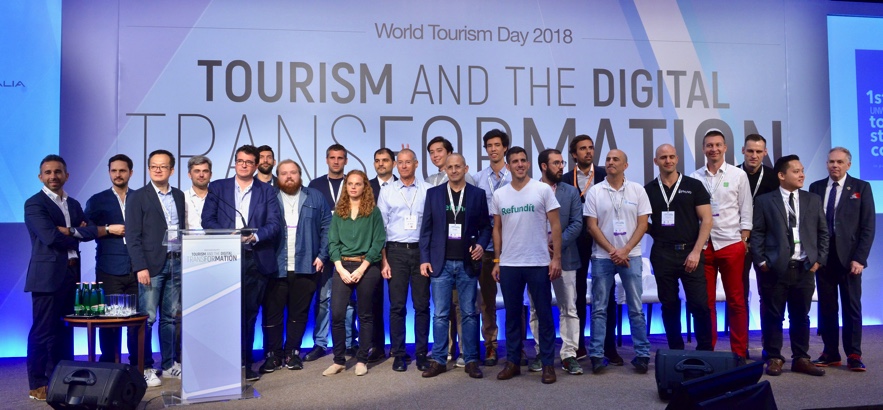
Digital transformation & innovation take spotlight on World Tourism Day 2018
Madrid, Spain, 28 September 2018 – World Tourism Day 2018 was observed in Budapest, Hungary yesterday (27 September 2018) with the official celebration focusing on the digital transformation in tourism, a World Tourism Organization (UNWTO) priority. The event examined how investment in new technology provides the sector with opportunities for innovation.
Introducing a new seminar-based format, the official celebration provided crucial insights into the actors and initiatives leading the digital transformation of the tourism sector and aimed at providing participants with concrete and actionable objectives to take away.
During the official celebration, the 20 semi-finalists of the 1st UNWTO Tourism Startup Competition gave pitches to investors and tourism leaders of their innovative projects with potential to disrupt the sector. They were selected from over 3000 applicants from 132 countries. The competition was launched by UNWTO and Spanish tourism leader Globalia to find projects that harness innovation and can change the way we travel.
“UNWTO is proud to have positioned, for the first time, tourism in the global innovation agenda – where it deserves to be because of its economic weight and importance. This is only possible by bringing the private and public sectors together in a meaningful way, and providing opportunities to share ideas, like we have done today”, said UNWTO Secretary-General Zurab Pololikashvili to conclude the event.
Mr. Pololikashvili was joined for the opening ceremony by Hungary’s Minister of State for Parliamentary Affairs Csaba Domotor and Gloria Guevara, President and CEO of the World Travel and Tourism Council, who emphasized the role of technological solutions such as biometric data capture in ensuring safe, seamless and sustainable travel.
Key amongst the conference conclusions was that political support is central to putting tourism at the centre of the global innovation and digital agenda. The event harboured this sentiment, attracting the participation of ministers from several countries and high-level political representatives at all levels of government, from local to national, as well as tourism’s main entrepreneurs, investors and innovators.
Other World Tourism Day celebrations also took place worldwide today, helping to mark the 38th year the observance day that has taken place to give visibility to the tourism sector’s role in international economic growth and development.
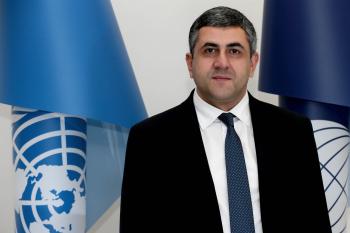
UN Secretary General has a message to the world on World Tourism Day
In his message for the Day, Secretary-General António Guterres said the wide reach of tourism into many sectors, from infrastructure and energy to transport and sanitation, and its huge impact on job creation, make it a vital contributor to the 2030 Agenda for Sustainable Development. At the same time, tourism plays a “pivotal” role in advancing the cultural understanding and bringing people together.
The United Nations is marking this year’s World Tourism Day by exploring how technological advances such as big data, artificial intelligence and digital platforms can contribute to the way people travel and foster innovation in the tourism industry.
“Yet tourism needs innovation in technology to realize its potential contributions,” the Secretary-General added, adding that its benefits need to flow to host communities.
“On World Tourism Day, I call on governments to support digital technologies that can transform the way we travel, reduce the environmental burden of tourism and bring the benefits of tourism to all.”
“The digital transformation is about providing benefits to all, and we are making sure that tourism contributes to this global commitment,” said Zurab Pololikashvili, Secretary-General of the World Tourism Organization (UNWTO).
Tourism has become one of the fastest growing and most important economic sectors in the world, according to the Madrid-based World Tourism Organization UNWTO, with international tourist arrivals having grown from 25 million in 1950 to nearly 1.3 billion today. The sector represents an estimated 10 per cent of the world’s Gross Domestic Product (GDP) and 1 in 10 jobs globally.
UNWTO expects that tourism will continue to grow at an average of 3 per cent annually until 2030, as more people have access to travel thanks to the decline in the price of transport, especially air transport, and growing middle classes worldwide.
The digital transformation is about providing benefits to all, and we are making sure that tourism contributes to this global commitment,” said Zurab Pololikashvili, Secretary-General of the World Tourism Organization (UNWTO).

Message from Grenada’s Minister for Tourism and civil aviation
It is my pleasure to address the nation on the occasion of World Tourism Day under the theme “Tourism and the Digital Transformation.” Over the past decade or so we have seen rapid increase in the use of technology in all areas of our lives. Technological advances have led to improvement in areas such as science, medicine, commerce and agriculture. Digital communications and social media have changed the availability and use of information and have served to connect the world in ways previously unseen – our world has become a “global village”. This use of technology and the digital transformation we are witnessing is also leaving its imprint on the tourism industry, a growing and dynamic industry on which, Grenada is highly dependent.
It is now not only possible but widely used, to book experiences without human contact through one’s computer or smartphone. In fact, you can experience a destination or product via virtual or augmented reality without even physically setting foot at the location. Additionally, some organizations are already considering the integration of Artificial Intelligence into their business models.
A digitally transformed tourism sector can improve entrepreneurship, empower local communities, promote the efficient management of resources as well as increase the market share and visibility of any destination. As a nation, we need to better understand the growing economic, societal and environmental impacts of technology and innovation in tourism if the local industry is to enjoy sustained growth. In fact, not only must we understand, but we must engage the use of all available technologies to promote our tourism, to maintain and improve our sustainable practices and to ensure that the industry brings benefits to all our people for an extended time.
I believe there are innovative ideas right here in Pure Grenada, Carriacou and Petite Martinique that are capable of revolutionizing the way our citizens and visitors experience all that this destination has to offer. I encourage citizens to give voice to these ideas. I also wish to encourage tourism enterprises to ensure that they keep abreast of the use of digital transformation to remain competitive. At the destination marketing level, my ministry along with the Grenada Tourism Authority will continue to lead the charge in further tapping into the opportunities provided by digital platforms and technology to ensure the world discovers, explores and shares Pure Grenada, the Spice of the Caribbean.
As citizens, we also have a number of digital social media platforms at our fingertips, including Facebook and Instagram which we know so well. I urge you to use them to share positive experiences about our country with the world, encouraging all to #FollowGrenada. We must pay attention to what we share, knowing that we are sending messages to the world and we need only our best to be seen and experienced. In Grenada, the Tourism industry provides direct and indirect employment for approx. 11,000 people and visitor spend pumps millions into our local economy.
Let’s work together to ensure that these benefits continue for future generations.
